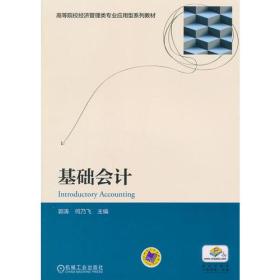
文字书写系统的计算理论
¥ 19.99 5.9折 ¥ 34 全新
库存3件
山东泰安
认证卖家担保交易快速发货售后保障
作者史伯乐 著
出版社北京大学出版社
出版时间2010-08
版次1
装帧平装
货号602 11-6
上书时间2024-11-08
- 在售商品 暂无
- 平均发货时间 24小时
- 好评率 暂无
- 最新上架
商品详情
- 品相描述:全新
图书标准信息
- 作者 史伯乐 著
- 出版社 北京大学出版社
- 出版时间 2010-08
- 版次 1
- ISBN 9787301171554
- 定价 34.00元
- 装帧 平装
- 开本 16开
- 纸张 胶版纸
- 页数 235页
- 字数 287千字
- 正文语种 英语
- 丛书 计算语言学与语言科技原文丛书
- 【内容简介】
- 《文字书写系统的计算理论》以说明文语转换系统的可操作性问题为前提,目的并不是要介绍不同的文字书写系统。最重要的理论论点都在第一章提出。其两个基本论点是:(一)词形到书写规则的映射存在正则关系(regularrelation);(二)一个特定语言的书写系统所表达的语言学信息具有一致性(consistency)。其它的章节主要是通过实例以不同的角度来对这两个论点作出详细的阐述和证明。第二章较详细的阐述了书写系统的正则性。第三章则详细说明了特定文字如何表达语言学信息以及所信息表达信息的一致性问题。第四章介绍现代语言学的几种常用的文字体系分类,进而提出对文字书写系统的二维分类方法。第五章简要介绍如何用心理语言学的方法来分析母语读者进行文语转换的方式,并将本书所提出的理论与心理语言学的结论进行印证。第六章先讲解文字与书写系统是如何被不同的文字借鉴以及承传的方式方法,另外给出文字中对缩写和数字的表述以及转换,最后对本书的内容做了一个总结。
- 【目录】
-
导读F9
PrefaceF29
ListofFiguresF31
ListofTablesF33
1ReadingDevices1
1.1TexttoSpeechConversion:ABriefIntroduction2
1.2TheTaskofPronouncingAloud:AModel6
1.2.1ASimpleExamplefromRussian6
1.2.2FormalDefinitions11
1.2.2.1AVMsandAnnotationGraphs11
1.2.2.2Definitions13
1.2.2.3Axioms14
1.2.3CentralClaimsoftheTheory15
1.2.3.1Regularity16
1.2.3.2Consistency19
1.2.4FurtherIssues20
1.2.4.1WhyaConstrainedTheoryofWritingSystems?21
1.2.4.2Orthographyandthe“Segmental”Assumption23
1.3TerminologyandConventions25
1.AAppendix:AnOverviewofFiniteStateAutomataandTransducers29
1.A.1RegularLanguagesandFiniteStateAutomata29
1.A.2RegularRelationsandFiniteStateTransducers30
2Regularity34
2.1PlanarRegularLanguagesandPlanarRegularRelations35
2.2TheLocalityHypothesis41
2.3PlanarArrangements:Examples42
2.3.1KoreanHankul43
2.3.2Devanagari45
2.3.3PahawhHmong47
2.3.4Chinese48
2.3.5ACounterexamplefromAncientEgyptian54
2.4CrossWritingSystemVariationintheSLU55
2.5MacroscopicCatenation:TextDirection59
2.ASampleChineseCharactersandTheirAnalyses62
3ORLDepthandConsistency67
3.1RussianandBelarusianOrthography:ACaseStudy67
3.1.1VowelReduction68
3.1.2RegressivePalatalization73
3.1.3LexicalMarkinginRussianandOtherIssues76
3.1.4SummaryofRussianandBelarusian79
3.2English79
3.3TheOrthographicRepresentationofSerboCroatianConsonantDevoicing89
3.3.1MethodsandMaterials91
3.3.2Results92
3.4CyclicityinOrthography95
3.5SurfaceOrthographicConstraints96
3.AEnglishDeepandShallowORLs99
3.A.1LexicalRepresentations99
3.A.2RulesfortheDeepORL127
3.A.3RulesfortheShallowORL129
4LinguisticElements131
4.1TaxonomiesofWritingSystems:ABriefOverview132
4.1.1Gelb132
4.1.2Sampson133
4.1.3DeFrancis134
4.1.3.1NoFullWritingSystemIsSemasiographic134
4.1.3.2AllFullWritingIsPhonographic135
4.1.3.3HankulIsNotFeatural135
4.1.4ANewProposal
4.1.5Summary
4.2ChineseWriting
4.3JapaneseWriting
4.4SomeFurtherExamples
4.4.1SyriacSyame
4.4.2ReduplicationMarkers
4.4.3CancellationSigns
5PsycholinguisticEvidence
5.1MultipleRoutesandtheOrthographic
DepthHypothesis
5.1.1EvidencefortheOrthographicDepthHypothesis
5.1.2EvidenceagainsttheOrthographicDepthHypothesis
5.2"Shallow"Processingin"Deep"Orthographies
5.2.1PhonologicalAccessinChinese
5.2.2PhonologicalAccessinJapanese
5.2.3EvidencefortheFunctionofPhoneticComponentsinChinese
5.2.4Summary
5.3ConnectionistModels:TheSeidenberg-McClellandModel
5.3.1OutlineoftheModel
5.3.2WhatIsWrongwiththeModel?
5.4Summary
6FurtherIssues
6.1AdaptationofWritingSystems:TheCaseofManxGaelic
6.2OrthographicReforms:TheCaseofDutch
6.2.1The1954SpellingRules
6.2.2The1995SpellingRules
6.3OtherFormsofNotation:NumericalNotationandItsRelationtoNumberNames
6.4AbbreviatoryDevices
6.5Non-BloomfieldianViewsonWriting
6.6Postscript
Bibliography
Index
点击展开
点击收起
相关推荐
— 没有更多了 —


















以下为对购买帮助不大的评价